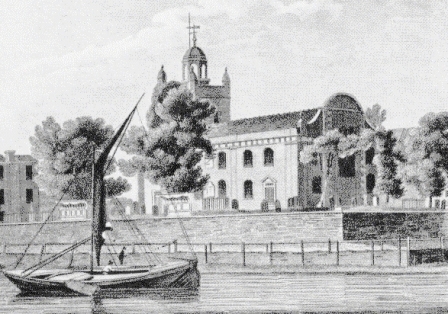Marmaduke Overend (music Theorist And Organist) on:
[Wikipedia]
[Google]
[Amazon]
 Marmaduke Overend ( 1730 – 1790) was a Welsh music theorist and organist. He served as Organist at All Saints Church, Isleworth for thirty years.
He was a pupil of
Marmaduke Overend ( 1730 – 1790) was a Welsh music theorist and organist. He served as Organist at All Saints Church, Isleworth for thirty years.
He was a pupil of
 Marmaduke Overend ( 1730 – 1790) was a Welsh music theorist and organist. He served as Organist at All Saints Church, Isleworth for thirty years.
He was a pupil of
Marmaduke Overend ( 1730 – 1790) was a Welsh music theorist and organist. He served as Organist at All Saints Church, Isleworth for thirty years.
He was a pupil of William Boyce William Boyce may refer to:
*William Boyce (composer) (1711–1779), English-born composer and Master of the King's Musick
* William Binnington Boyce (1804–1889), English-born philologist and clergyman, active in Australia
*William Waters Boyce ( ...
, (1711–79). Boyce had been a pupil Johann Christoph Pepusch
Johann Christoph Pepusch (1667 – 1752), also known as John Christopher Pepusch and Dr Pepusch, was a German-born composer who spent most of his working life in England. He was born in Berlin, son of a vicar, and was married to Margherita de l ...
(1666/7–1752), who was greatly interested in Greek music and the music of antiquity: Boyce followed this interest. On Boyce's death, Overend bought his teacher's manuscripts. Overend constructed elaborate mathematical tables noting the relationship between note values, or intervals. He assisted John Hawkins
John is a common English name and surname:
* John (given name)
* John (surname)
John may also refer to:
New Testament
Works
* Gospel of John, a title often shortened to John
* First Epistle of John, often shortened to 1 John
* Second ...
by transcribing early musical examples for inclusion in the latter's ''History of Music'', 1776.
He published in 1781 a prospectus for a series of lectures on the science of music, titled ''A Brief account of, and an introduction to, eight lectures, in the Science of Music'' ... .
Marmaduke Overend died at Isleworth on 25 June 1790, describing himself in his will as ‘Student of Music’ (ODNB);
Laetitia Matilda Hawkins
Laetitia Matilda Hawkins (baptized 8 August 1759 – 22 November 1835) was an English novelist, associated with Twickenham. She was the daughter of Sir John Hawkins, an acquaintance of Samuel Johnson.
Hawkins was an outspoken yet highly conserv ...
, described him as the “Scientific Organist of Isleworth.”
Following Overend's death, his library was sold in 1791 by Egerton Bros. His manuscript volumes, as well as Boyce's treatise, were bought by John Wall Callcott
John Wall Callcott (20 November 1766 – 15 May 1821) was an eminent English composer.
Callcott was born in Kensington, London. He was a pupil of Haydn, and is celebrated mainly for his glee compositions and catches. In the best known of his ...
, (1766–1821) who used these manuscripts as sources for his own work. In 1807, Callcott donated all the manuscripts to the Royal Institution
The Royal Institution of Great Britain (often the Royal Institution, Ri or RI) is an organisation for scientific education and research, based in the City of Westminster. It was founded in 1799 by the leading British scientists of the age, inc ...
, where they were consulted by John Farey Sr
John Farey Sr. (24 September 1766 – 6 January 1826) was an English geologist and writer best known for Farey sequence, a mathematical construct that is named after him.
Biography Youth and early career
Farey was born on 24 September 1766 at ...
and informed his writings on music theory in ''Rees's Cyclopædia
Rees's ''Cyclopædia'', in full ''The Cyclopædia; or, Universal Dictionary of Arts, Sciences, and Literature'' was an important 19th-century British encyclopaedia edited by Rev. Abraham Rees (1743–1825), a Presbyterian minister and scholar w ...
'' and the '' Edinburgh Encyclopaedia'': the manuscripts include Farey's MS notes. Farey's writings in the two works comprise more than 350 articles.
The manuscripts were moved in 1972 to the Bodleian Library
The Bodleian Library () is the main research library of the University of Oxford, and is one of the oldest libraries in Europe. It derives its name from its founder, Sir Thomas Bodley. With over 13 million printed items, it is the second- ...
, Overend MS. Don c.136-42. They comprise now one volume by Boyce, six by Overend and two by Callcott, nine volumes in all, but Farey noted in his article on the Farey Notation, ''Edinburgh Encyclopaedia'', vol 9, p. 274, that he consulted fourteen volumes, so it must be presumed that five have been lost.
A brief life by W. H. Hadow was published in the 2nd edition of Grove. It lists his compositions and mentions his work on musical theory and his manuscripts. It is very similar to the account of him by Louisa M. Middleton in the ''DNB'', updated by K. D. Reynolds in the ''ODNB'' and Jamie C. Kassler in the ''New Grove.''
Compositions
*An Epithalaneum for the marriage of the marriage of George III in 1761 *Twelve sonatas for two violins and a violincello, 1779 *A canon for eight voices, ''Glory be to the Father'', was printed by Thomas Warren in a volume of his annual collection of Catches, Canons and Glees. (1763-1794) *A Hunting Cantata'' (c. 1780)References
{{DEFAULTSORT:Overend, Marmaduke 1730s births 1790 deaths Welsh classical composers Welsh male classical composers Welsh classical organists British music theorists